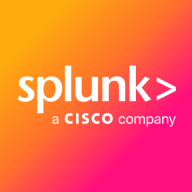

Splunk Enterprise Security and Stackify compete in cybersecurity and application performance management. Splunk leads in security analytics and threat detection, while Stackify focuses on application performance and developer insights.
Features: Splunk Enterprise Security offers advanced threat detection, data visualization, and security management. Stackify excels in application performance monitoring, detailed logs, and provides real-time insights. Splunk focuses on comprehensive security analytics, whereas Stackify targets developers seeking improved application insights and performance.
Room for Improvement: Splunk Enterprise Security could improve by simplifying deployment and integration processes, enhancing user interface intuitiveness, and offering more cost-efficient solutions. Stackify can expand security features, improve threat detection capabilities, and enhance user documentation.
Ease of Deployment and Customer Service: Splunk's robust feature set makes it complex, requiring dedicated resources for integration and maintenance. Stackify's simpler deployment model offers faster setup. Both have notable customer service, though Stackify is praised for clearer and more efficient support.
Pricing and ROI: Splunk entails higher setup costs, justified by substantial ROI in security threat management. Stackify's budget-friendly setup prioritizes cost-efficiency, making it an attractive option for developers desiring immediate insights and performance improvements.
| Product | Market Share (%) |
|---|---|
| Splunk Enterprise Security | 6.9% |
| Stackify | 0.5% |
| Other | 92.6% |

| Company Size | Count |
|---|---|
| Small Business | 109 |
| Midsize Enterprise | 50 |
| Large Enterprise | 264 |
| Company Size | Count |
|---|---|
| Small Business | 3 |
| Midsize Enterprise | 2 |
| Large Enterprise | 2 |
Splunk Enterprise Security delivers powerful log management, rapid searches, and intuitive dashboards, enhancing real-time analytics and security measures. Its advanced machine learning and wide system compatibility streamline threat detection and incident response across diverse IT environments.
Splunk Enterprise Security stands out in security operations with robust features like comprehensive threat intelligence and seamless data integration. Its real-time analytics and customizable queries enable proactive threat analysis and efficient incident response. Integration with multiple third-party feeds allows detailed threat correlation and streamlined data visualization. Users find the intuitive UI and broad compatibility support efficient threat detection while reducing false positives. Despite its strengths, areas such as visualization capabilities and integration processes with cloud environments need enhancement. Users face a high learning curve, and improvements in automation, AI, documentation, and training are desired to maximize its potential.
What Are the Key Features of Splunk Enterprise Security?In specific industries like finance and healthcare, Splunk Enterprise Security is instrumental for log aggregation, SIEM functionalities, and compliance monitoring. Companies leverage its capabilities for proactive threat analysis and response, ensuring comprehensive security monitoring and integration with various tools for heightened operational intelligence.
Stackify is an application performance management (APM) solution that combines application performance monitoring with logs, errors, and reporting. It is a SaaS solution that is developer-focused. Users can quickly scan, identify, and repair issues with applications. Stackify APM offers valuable tools, such as Prefix and Retrace, which help to make it a comprehensive and valuable APM solution. Stackify is now part of the Netreo family of IT Infrastructure Management (ITIM), which is considered one of the fastest-growing IT organizations in the marketplace today.
Stackify Prefix
Stackify Prefix helps developers write better code, faster. The tool examines, tests, and approves code as it is being written. Almost every new application is code-perfect, negating the need for exhausting troubleshooting and frustrating time-consuming code review.
Prefix is able to discover poor-performing SQL queries, ORM queries, potential bottlenecks, and concealed exceptions prior to moving the application into production.
Prefix offers Summary Dashboards, intuitive suggestions, integrated logs, and distributed tracing. Distributed tracing expands visibility to cloud-native applications, microservices, and containers and can also provide additional transparency to cache services, web services, third-party services, and more. Users are able to easily move from logs to traces and back.
This valuable tool ensures developers are able to consistently release the best code possible in the least amount of time, while improving performance, productivity, and profitability.
Prefix is a very robust and easy-to-use tool. It can be used seamlessly with Linux, macOS, and Windows. Prefix integrates well with numerous languages, such as Java, Python, Ruby, PHP, Node.js, .Net, and .Net Core.
Stackify Retrace
Stackify Retrace is a user-friendly, trusted APM solution used in more than fifty countries worldwide. Users know that Retrace is able to ensure they can complete quicker, more efficient application development and consistently enhance overall application performance by suggesting important intuitive suggestions users need.
This solution is beneficial to both developers (Dev) and operations (Ops) personnel to learn to improve code and immediately finetune issues by:
Retrace Real User Monitoring (RUM) uses both front-end and back-end monitoring to give users a complete picture of what is going on with the applications. This intuitive dashboard displays performance with a complete breakdown of resource usage and integrates the server-side and client traces into one engaging, user-friendly, extensive view.
Retrace is an out-of-the-box solution that works seamlessly with Java stacks, PHP, Node.js, Ruby, Python, .Net, and .Net Core. It is also compatible with many of today’s popular frameworks, such as AWS, Azure, Elasticsearch, MongoDB, MySQL, Oracle, PostgreSQL, Redis, and SQL Server. Additionally, Retrace will work effectively with many cloud providers, containers, and languages, and offers excellent and easy integration with today's favorite tools such as Jira, Slack, Jenkins, and more.
We monitor all Log Management reviews to prevent fraudulent reviews and keep review quality high. We do not post reviews by company employees or direct competitors. We validate each review for authenticity via cross-reference with LinkedIn, and personal follow-up with the reviewer when necessary.